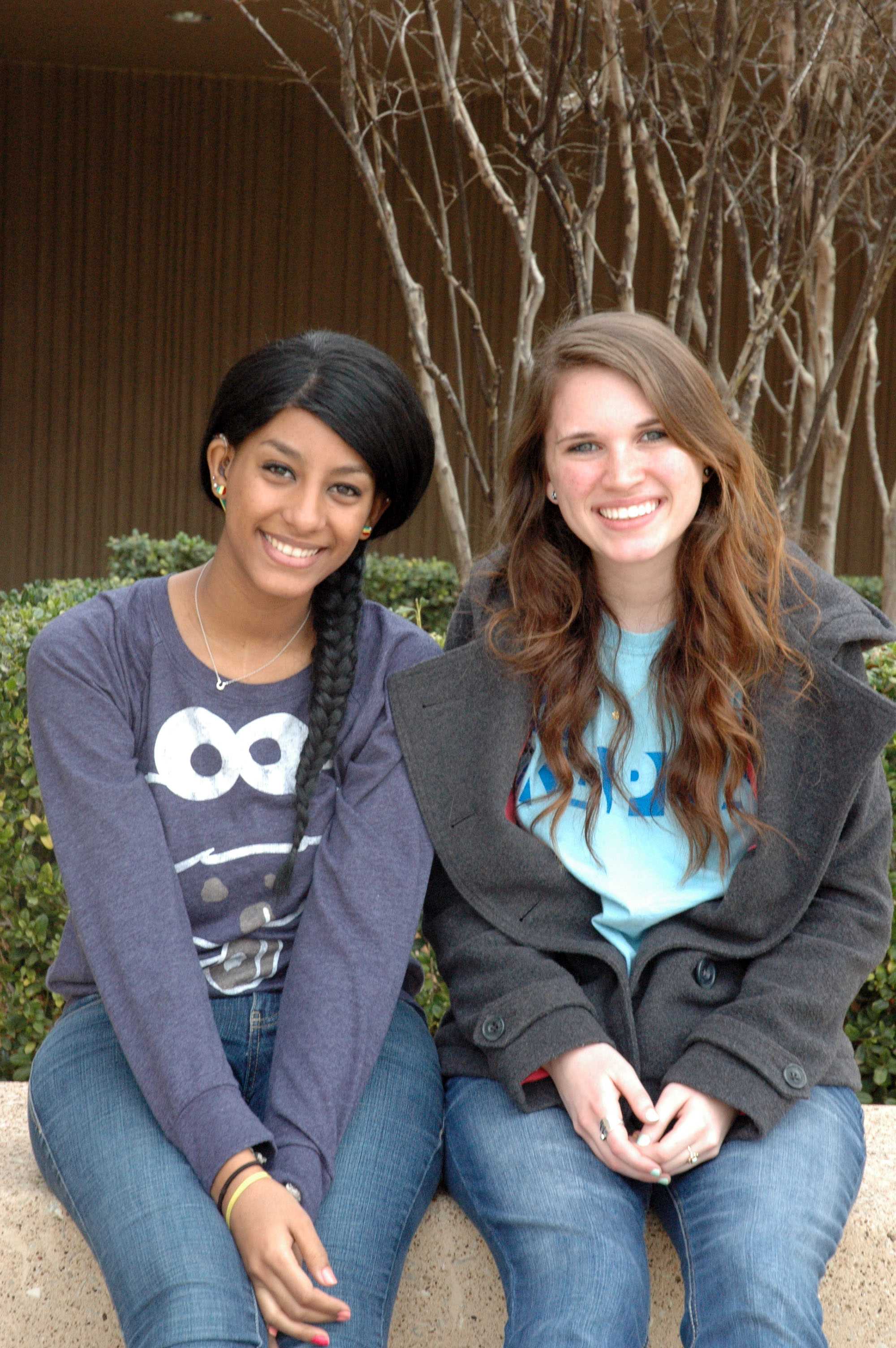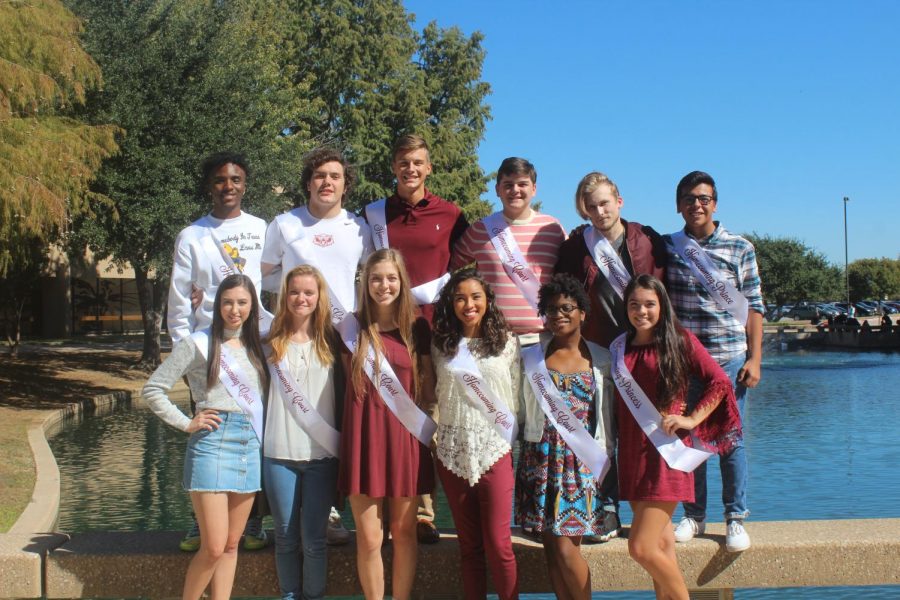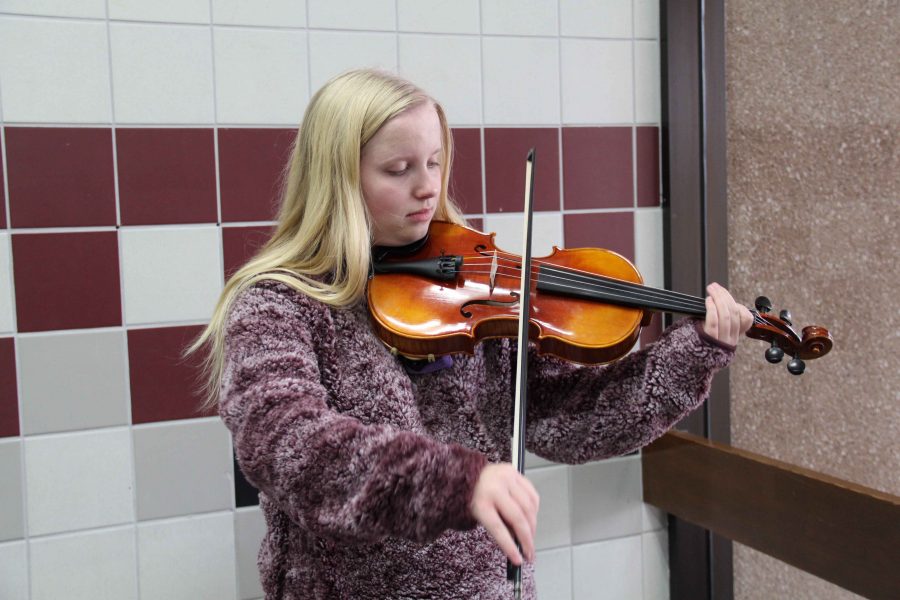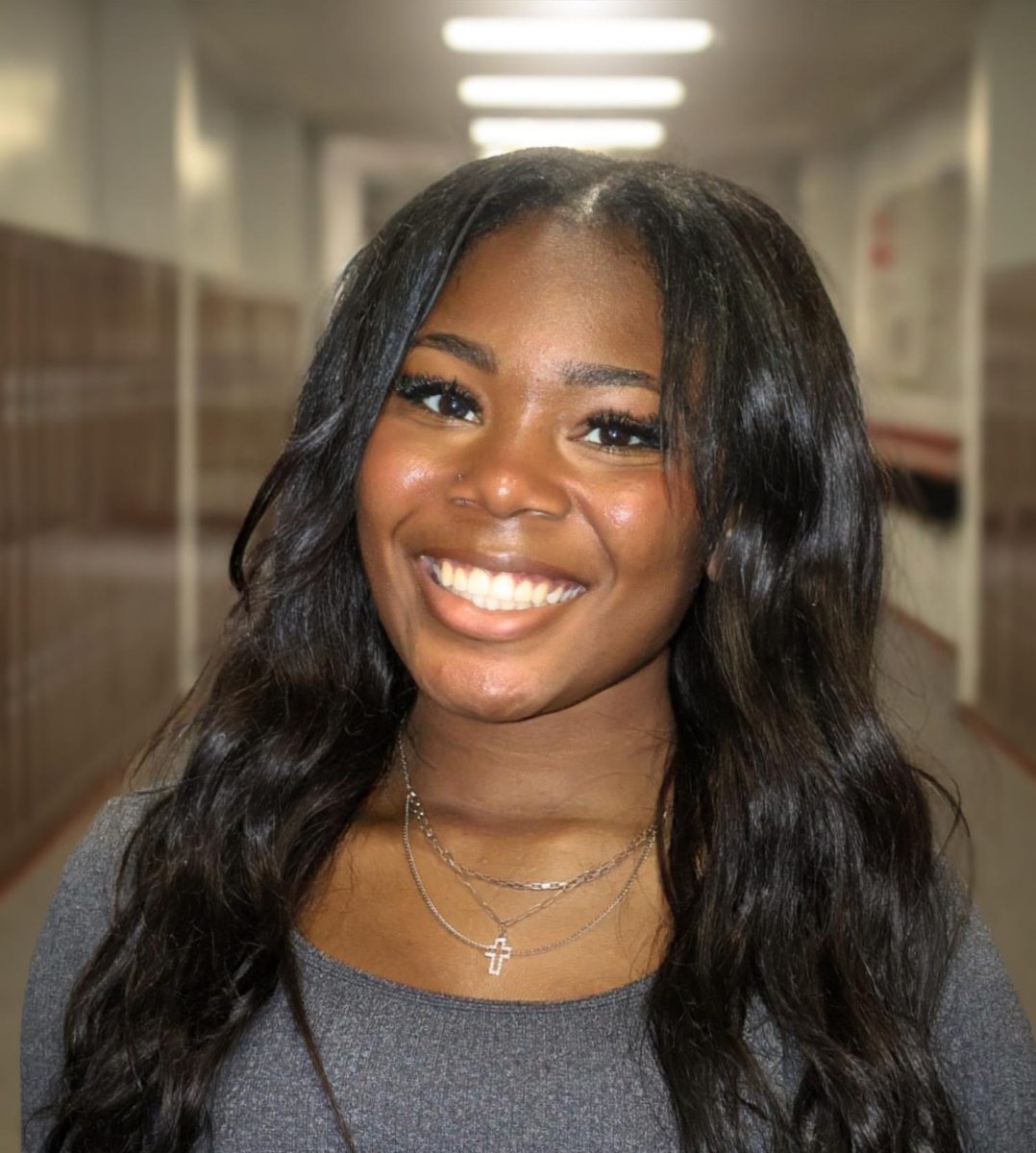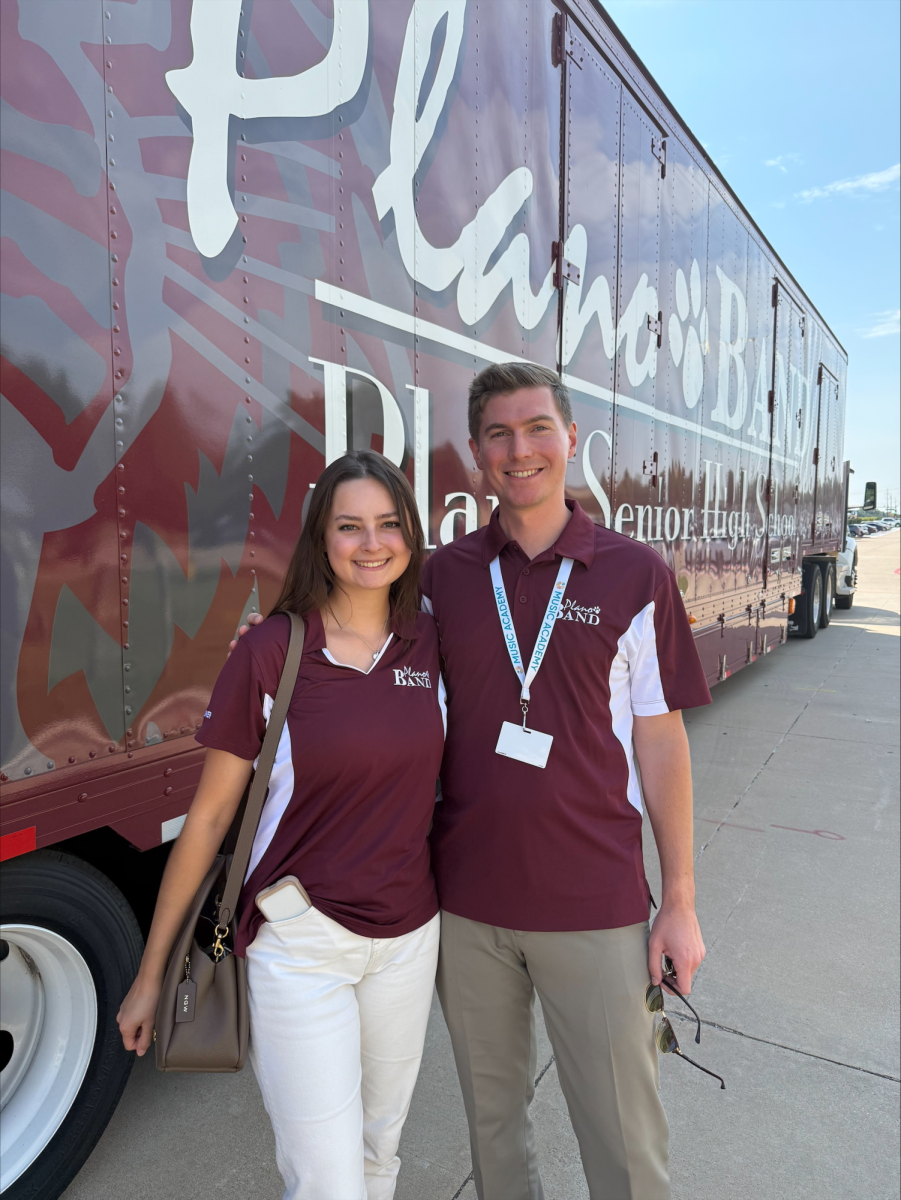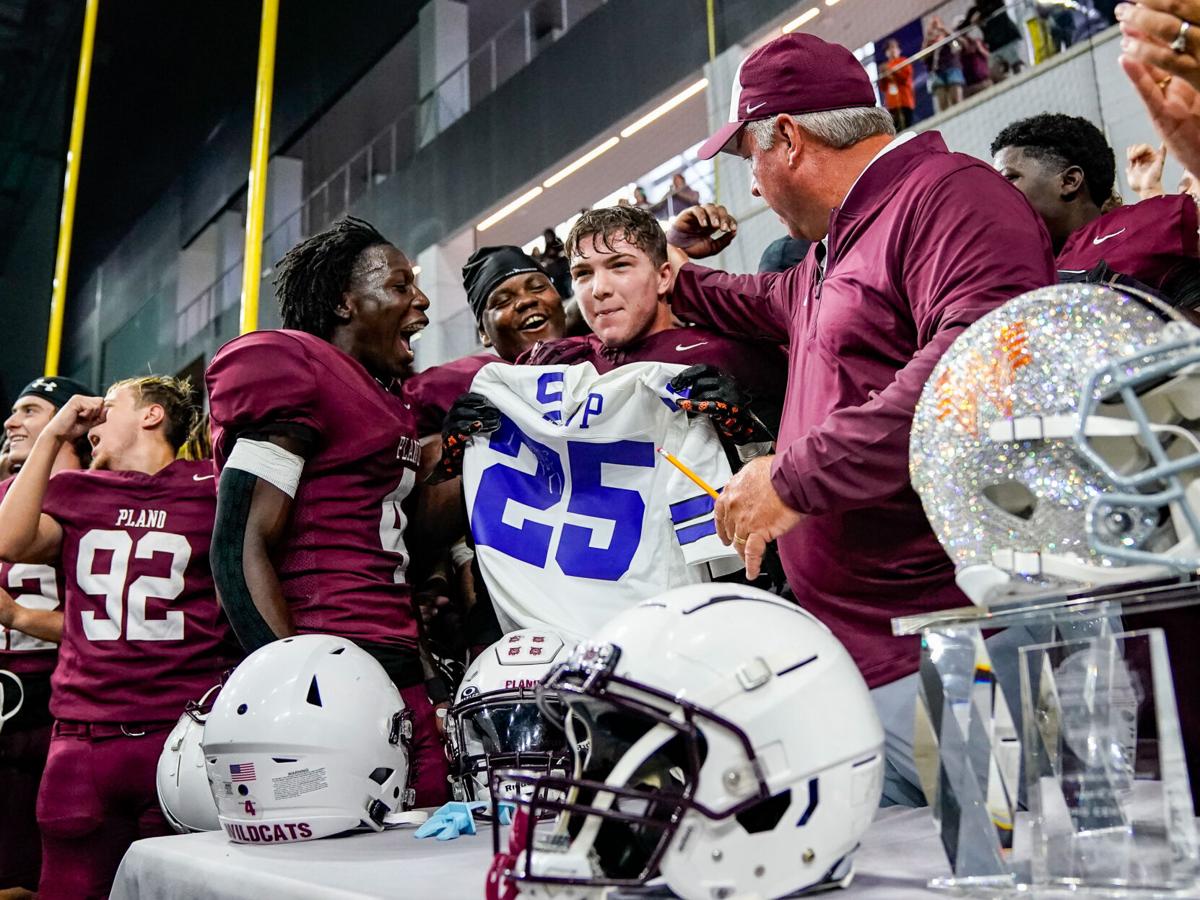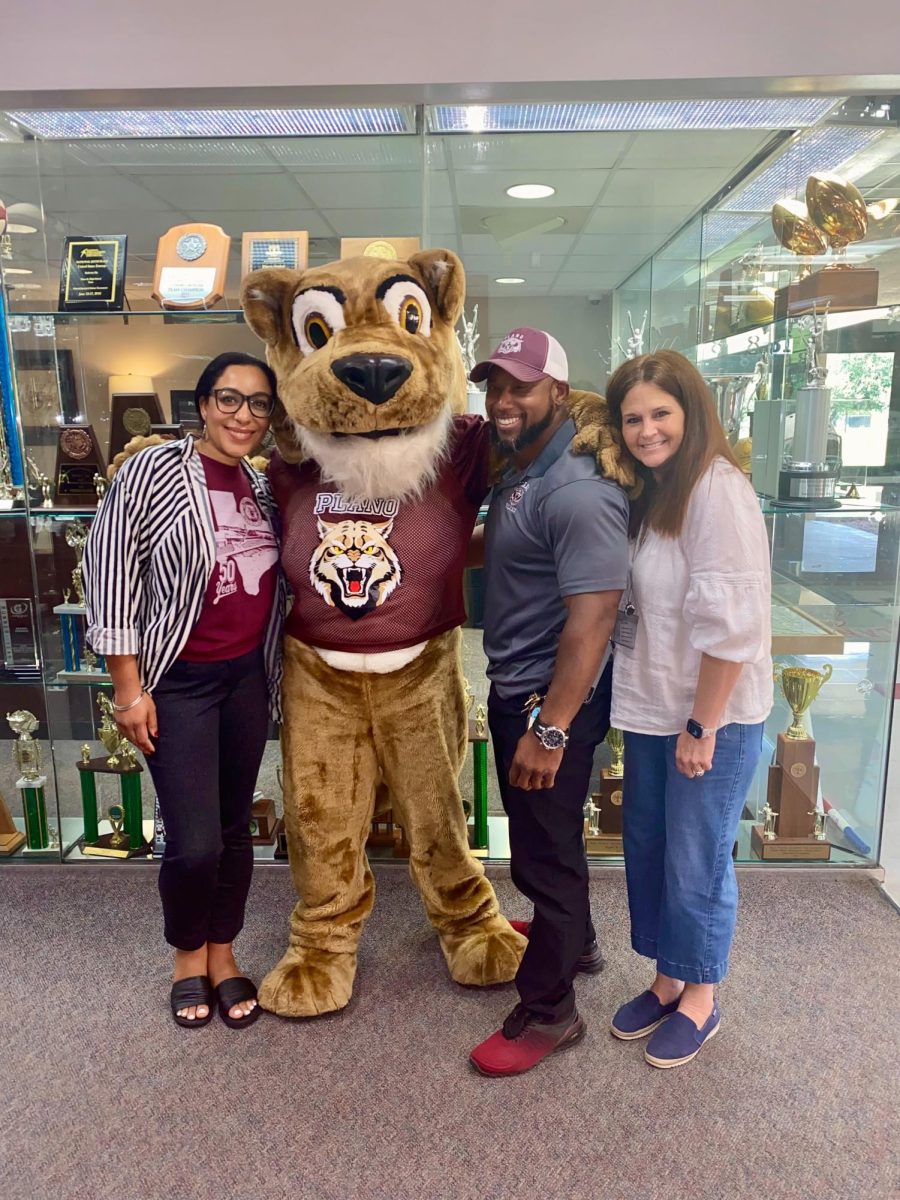The bell rings for class to be dismissed. It is only when the rush of students fill the hallways that they know it is time to walk to the next class. They walk along side of each other in the halls silently, with their hands moving in front of each other. Sign language is their only mode of communication. Seniors Leele Girma and Karissa Mirus prefer it this way. They prefer to be deaf.
Although both girls are hard of hearing, they are capable of hearing with hearing aids, and are able to talk. But due to mean remarks and curious looks from the past years, they prefer to be mute and unable to hear.
“Sometimes people test to see if I can hear them or not, and it makes me more nervous,” Karissa said through the words of an interpreter. “I have also met some people that will treat me like I am lower functioning or less than them, or that I have a learning disability when I don’t. And I just can’t hear. That’s it. I am no different. I am normal in every other way.”
Even though hearing students, and teachers don’t always understand them, Leele and Karissa have each other. They have been the best of friends for seven years and help one another through tough times.
“Karissa is like my security blanket,” Leele said through the words of an interpreter. “When she is there, I don’t feel alone. We are just compatible.”
The girls are in four of the same classes, taking all honors courses, as well as going to Rochester Institute of Technology in New York City together next year. They both want to do something with children. According to both girls they have a wonderful deaf education program and deaf services and a branch of the school is a national technical institute for deaf people.
“We both decided not to be roommates,” Leele said. “We decided we should take a break from each other. We want to meet other people, learn, and we won’t make new friends if we are together.”
Their goals and ambitions are similar; however, their backgrounds are different.
Leele’s mother was sick when she was pregnant due to the unsanitary environment in Africa, resulting in Leele’s condition of hard of hearing. Her mother sent Leele to the United States right after she was born to live with her aunt, while her mother stayed in Africa. But when she turned 11 her mother moved to France, where she met up with her. After her father died, they decided to move to Texas, where she lives with her mother and two hearing brothers now.
Unlike Leele, who is the only deaf person in her family, Karissa is the third generation of the hard of hearing gene. Her mom was born premature resulting in total deafness, but her father has the hereditary gene. She has two hearing siblings and one deaf brother.
“So it is half and half,” Karissa said. “Growing up my brother always thought it was cool. He liked to interpret sometimes. And I really look up to my parents. They can do it, they function fine, and I can do it too.”
According to Deaf Education teacher Leslie Allen, Karissa has an advantage because both of her parents are deaf. There are only 10 percent of deaf people in the world that are born to deaf people and the other 90 percent are born to hearing parents or are the only deaf person in the family.
“The communication in her family and support is just phenomenal,” Allen said. “For Karissa to have a mother and father that are fluent signers and can communicate with her and have been able to since birth is phenomenal. There is no communication barrier.”
Other students, who don’t have the benefit of fluent communication within the family, sometimes have a hard time in a classroom that is mainstream and have a hard time keeping up with the pace in those environments, according to interpreter Debbie White. Some students have one or two classes that the Deaf Education teachers go in with them, and the teacher makes sure they have an interpreter, and helps modify the student’s work.
“It also depends on the parent,” Karissa said. “Some parents make an effort. It’s not that they have to sign, but they can communicate and make them talk and then they can pick up things a lot faster, it doesn’t matter if it is signing or not as long as they are encouraging it and communicating with them. But some parents just leave them and don’t communicate with them, doing everything for them. Then they don’t know how to do anything on their own. One girl in middle school didn’t even know how to tie her own shoes because her mother did everything for her. She had no way to communicate at home and it is really sad.”
Even though Karissa can communicate with her family, problems sometimes arise when trying to communicate with teachers and students. There are a few ways to communicate in the classroom such as passing notes back and forth, reading lips, and texting.
“Sometimes a teacher thinks I can’t do it until I prove them wrong and then they’re like, ‘oh’ and they get used to it,” Karissa said. “Sometimes they’re really awkward with an interpreter and the interpreter following them around and they don’t really like that. After a while they get used to it. Also, the hearing kids don’t really talk to me. So I am just kind of sitting there by myself. And group projects, I hate them, because it is like I am just sitting there and nobody wants to communicate with me. They think I can’t do anything, so I just sit there until the teacher puts me in a group.”
Not only is the school environment an obstacle, but finding a job is difficult as well. Leele has been discriminated against in the work place seven times. She has only had one job, which was a camp counselor for deaf children.
“I applied to Forever 21 and they told me that the position was retail, so I went and they interviewed me,” Leele said. “They laughed and asked, ‘What is wrong with you?’ and I said, ‘I am deaf.’ They asked if they would bring her an interpreter, and she had to explain what they do and what they did. They said, ‘Well, part of the job is you have to answer the phone and have things on your ear,’ and I said ‘But I can’t, I can’t hear.’ So they said, ‘Sorry we can’t hire you.”’
Through every obstacle, Karissa and Leele stay happy and keep living their life. According to Leele she wouldn’t want to trade being deaf.
“I am unique,” Leele said. “People tell me I am unique. I like that. And if you really knew me you would know that I am just like you.”
Karissa, just like Leele, is determined and ambitious to do anything that she sets her mind to.
“Being deaf is a challenge, but that doesn’t have to be a bad thing,” Karissa said. “It is just showing others that if I can do it, you can do it too. If you really knew me you would know that I am a normal kid that can do anything except hear.”

